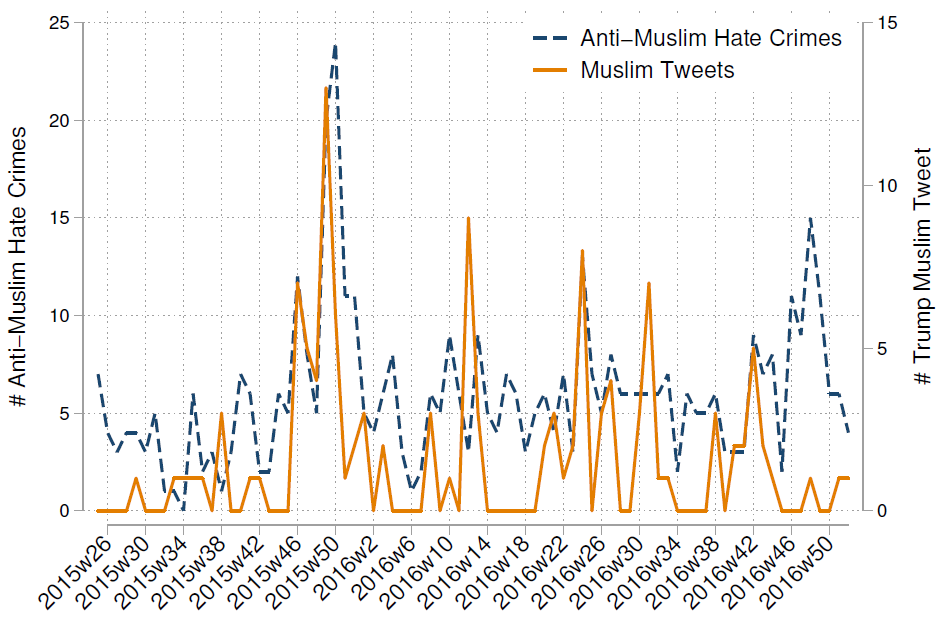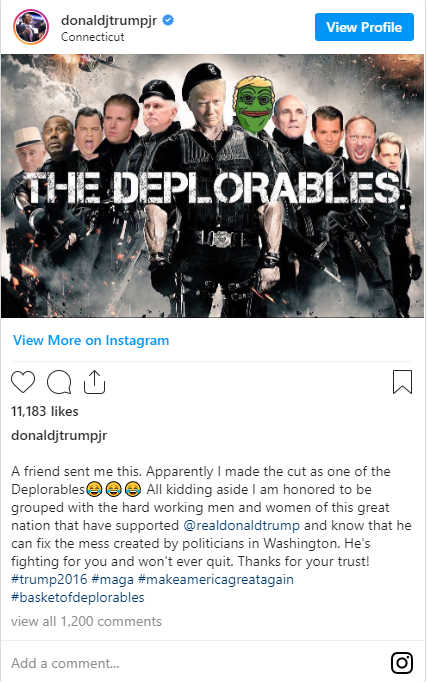Continuing my outline of Celine-Marie Pascale’s article The Weaponization of Language. Wherever possible hyperlinks take you to the direct source online. Hopefully, interested readers will find leads to many other relevant sources here either by direct or indirect links.
Celine-Marie Pascale surveys the way disinformation enters our everyday discourse, making “ordinary people” “unwitting tools of right-wing movements”.
Despite its [=the great replacement theory] French origins, the ISD’s analysis has revealed that the theory is becoming more prevalent internationally, with English-speaking countries now accounting for 33% of online discussion.
Julia Ebner, co-author of the report at ISD, said: “It’s shocking to see the extent to which extreme-right concepts such as the ‘great replacement’ theory and calls for ‘remigration’ have entered mainstream political discourse and are now referenced by politicians who head states and sit in parliaments.”
(Iqbal and Townsend)
Weaponized language is a powerful form of symbolic violence that tills the soil for physical violence. Following the Christchurch massacre, the Institute for Strategic Dialogue identified 10 Twitter accounts that were most influential in propagating the idea that white people are under attack; eight of these were in France, one belonged to the extreme right site Defend Europa, and the other belonged to Donald Trump (Iqbal and Townsend, 2019). Weaponized language has preceded and accompanied every act of collective violence. In mundane discourses weaponized language normalizes hate and hate groups through purportedly ordinary language.
(Pascale, 909)
“Illegal Alien”, “Chain Migration”
In the United States, for example, the term ‘illegal alien’ is often used to dehumanize those seeking asylum. Political and media discourses often refer to ‘chain migration,’ when in fact they are talking about family reunification. Many in the United States use the term ‘chain migration’ simply because they are repeating the only phrasing that they have ever heard. However, we come to see the world as we learn to name and describe it. Metaphors and linguistic frames seep into everyday discourse and gradually become part of a worldview. In every country, the racialized citizen is an illegitimate citizen whose welfare is precarious. Trump’s anti-Muslim and anti-Latino hate speech is directly correlated with increased hate crimes against Muslims and Latinos in the United States (Beutel, 2018).

Pascale notes two other extremist trends in the U.S.:
- the creation of a naturalization task force to revoke the citizenship of naturalized citizens (Vega, 2018 (podcast); see also Lind, 2018 for the racist context)
- the jailing of 49,000 unaccompanied children from dangerous Latin American countries (Kinosian and Holpuch, 2018)
Such attacks on children have been made possible by the very intentional linguist practices that preceded these actions. Trump’s Twitter account has been identified by the Institute for Strategic Dialogue as one of the 10 most influential accounts in the world for propagating the extreme right-wing paranoia that white people are being eliminated through migration and violence (Iqbal and Townsend, 2019).
“Othering”
. . . we are familiar with the practices of ‘othering’ that devalues people and excludes them from deserving empathetic consideration. A lack of empathy is easily leveraged into a willingness to disregard harm done to those who are ‘othered,’ and then escalated into a willingness to inflict harm upon them, which is often rationalized as selfprotection. Ultimately, ‘othering’ blames victims for the suffering inflicted upon them.
(Pascale, 909)
It’s not only the U.S. and Europe, of course. It’s happening throughout the world. Racial slurs have preceded genocidal acts throughout history and up to today (e.g. Buddhist Myanmar’s purging of Muslim Rohoginyas).
Nationalism depends upon slurs that are used to construct groups of people as being less than human, as being potentially violent predators, and as deserving any harsh treatment they might receive. Slurs have been used to create dehumanized enemies throughout time. It is the essential first step that justifies physical violence.
(Pascale, 910)
Rebranding White Supremacists
Hate movements have learned to rebrand themselves so they can attract larger support.
White supremacists have rebranded themselves as the “alt-right”, “as if they are a legitimate party with a platform beyond white supremacy.” (Pascale, 910) Alt-right is a “usefully” vague term that found a web and social media revival in 2015:
While the nationalist, white identity-obsessed core of the alright remained the same, the nature of its supporters began to shift. Alice Marwick and Becca Lewis chronicle this evolution in their 2016 report on online misinformation and disinformation. They explain that the “accommodatingly imprecise” alt-right label had, by the 2016 election, been embraced by, or at least was being used to describe, a range of “conspiracy theorists, techno-libertarians, white nationalists, Men’s Rights advocates, trolls, anti-feminists, anti-immigration activists, and bored young people” (Marwick and Lewis, 3). The reemergence of the alt-right also coincided with, and indeed was driven by, a rising tide of global far-right extremism.
(Philips, 4)
The same report demonstrates through detailed media citation and sentence topic analyses that the far-right articles gained far more mass media coverage than their small numbers would predict. Mainstream media was the booster for extremist right-wing talking points merely as a result of noting and commenting on them. Breitbart and other extremist blogs had a relatively small audience but nonetheless were able to “set the mainstream agenda” with the help of mainstream media:
These [extremist] media, instead, depended on the signal boosting power provided by center-left establishment publications like The New York Times, The Washington Post, and CNN.com to ensure that their messages would spread to a national, or even global, audience. That’s how Pepe the Frog lept onto the public stage. That’s how Donald Trump Jr.’s Instagram post became a national news story, and ultimately, a talking point in two presidential candidates’ campaigns. That’s how many Americans first heard the term “alt-right.”
(Philips, 6)
We also know how others such as religious fundamentalists and those who call themselves conservatives deploy language that justifies hatred towards other religious, racial or unorthodox gender-identity groups.
There is debate, of course, and challenges are mounted. But the challenges work both ways as one group seeks to subvert another: Black Lives Matter is met with All Lives Matter; immigrant Dreamers are met with We Are All Dreamers.
The most serious stage of the problem is when people can no longer find other positive or neutral words to frame the issues that are dividing society.
Four-fold Strategy of Right-Wing Authoritarianism
One group of people who study these sorts of phenomena, how societies work, how different groups react and respond to adverse situations and each other, are the sociologists, the political scientists, the historians, the anthropologists, the psychologists. These academics are the ones who are coming under regular attack as “left-wing”, “liberal”, just as serious climate scientists, and now even many medical scientists, are being widely attacked by authoritarian and right-wing extremists. Meanwhile, the media reporting on these attacks is itself branded “fake news”.
It would be nice to think that merely responding with “fact-checking” would be the answer. Unfortunately, if it were so simple we would not be in this state of affairs now:
Global circumstances would seem to invite social sciences in general, and sociologists in particular, to fight back by entrenching ourselves in the world of objective facts. This path is important and perhaps irresistible when politicians and media openly make statements that are certifiably false. However, a retrenchment of empiricism will not deliver us from this historical moment, just as it did not prevent it from arriving. Indeed, it is often government efforts to slide facts that lead to the preposterous logic they present to the public. As Montaigne reminds us, falsehood is not the opposite of truth. Unbound by logic and fact, those willing to weaponize language have boundless possibilities. The four-fold strategy of right-wing authoritarianism leveraged through censorship, propaganda, disinformation, and mundane discourse can itself debilitate resistance, as it is intended.
(Pascale, 911)
Beutel, Alejandro. 2018. “How Trump’s Nativist Tweets Overlap with Anti-Muslim and Anti-Latino Hate Crimes.” Southern Poverty Law Center. May 18, 2018. https://www.splcenter.org/hatewatch/2018/05/18/how-trump%E2%80%99s-nativist-tweets-overlap-anti-muslim-and-anti-latino-hate-crimes.
Iqbal, Nosheen, and Mark Townsend. 2019. “Christchurch Mosque Killer’s Theories Seeping into Mainstream, Report Warns.” The Observer, July 7, 2019, sec. World news. https://www.theguardian.com/world/2019/jul/07/christchurch-mosque-killer-ideas-mainstream-social-media.
Klemperer, Victor. 2013. Language of the Third Reich: LTI: Lingua Tertii Imperii. London ; New York: Bloomsbury Academic.
Marwick, Alice, and Rebecca Lewis. 2017. “Media Manipulation and Disinformation Online.” Data & Society Research Institute. https://datasociety.net/library/media-manipulation-and-disinfo-online/.
Pascale, Celine-Marie. 2019. “The Weaponization of Language: Discourses of Rising Right-Wing Authoritarianism.” Current Sociology Review 67 (6): 898–917. https://doi.org/10.1177/0011392119869963.
Phillips, Whitney. 2018. “The Oxygen of Amplification: Better Practices for Reporting on Extremists, Antagonists, and Manipulators.” Data & Society Research Institute. http://datasociety.net/output/oxygen-of-amplification/.
If you enjoyed this post, please consider donating to Vridar. Thanks!


I don’t dispute for a moment any claim that language has been weaponized in our political discourse. But, it always has been. The weaponization of language is not a new phenomenon. I suppose an argument can be made that the problem has gotten worse in recent years, but I can’t help suspecting a bit of golden-agism when I hear it.
In any case, it is good that we recognize the problem and look for ways to fix it.
We will never fix it, though, as long as we’re convinced that only our political adversaries have been doing it.
Quite correct. Note the quotation from a study of the Third Reich and its preliminary years in the 1920s. It’s surely as old as propaganda (even speech) itself. As you note, the point is to be alert to it and its many channels.